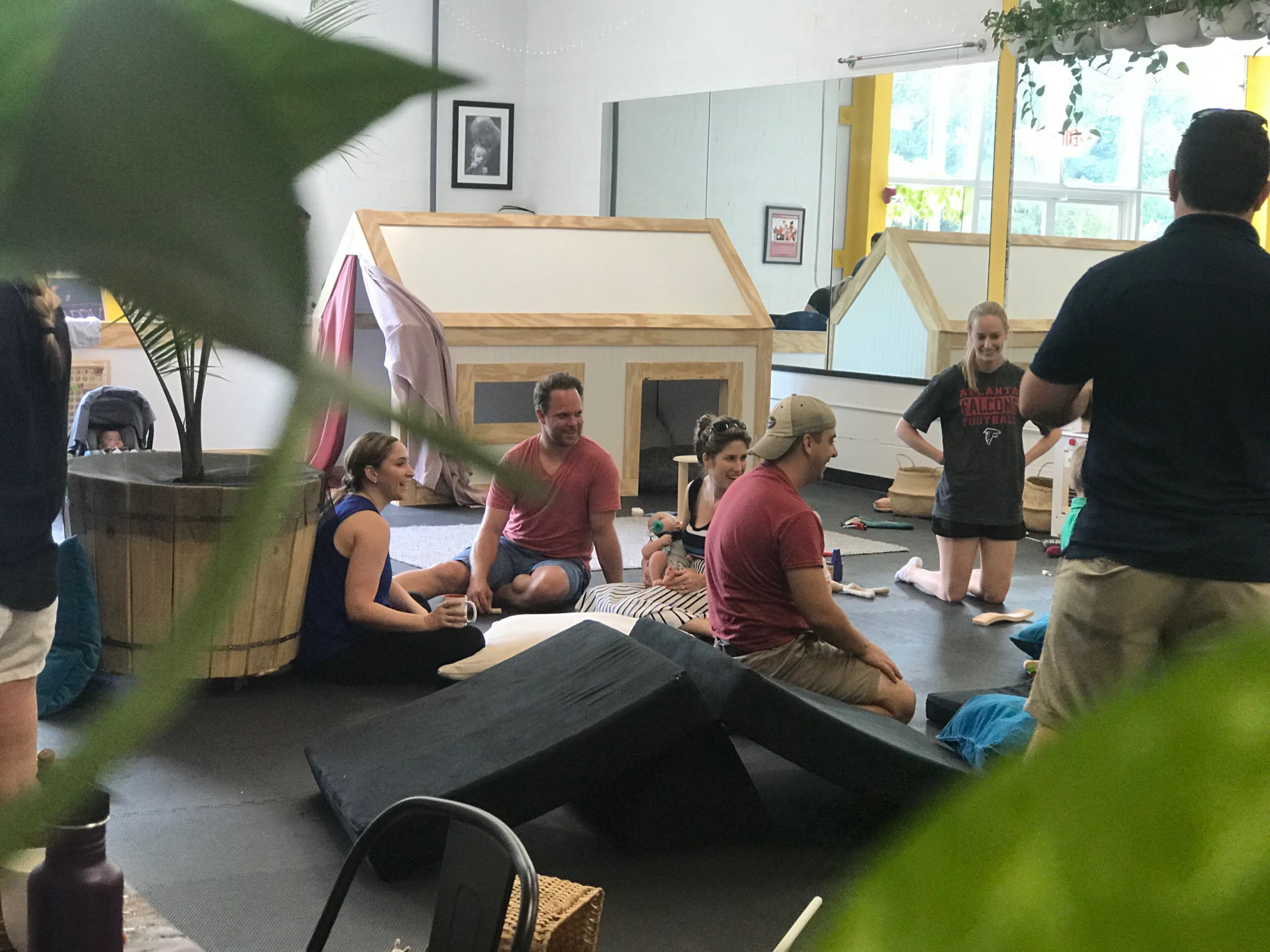How a Scandinavian concept may help families in this moment
Where Christine Christensen grew up, it’s customary to take life a little slower, to establish deeper connections and be conscious of being present.
It’s a Scandinavian concept known as “hygge.” When this idea made its way stateside a couple years ago, it mostly took hold in the form of Instagram pictures showing cozy interior design with good lighting and cups of coffee. And while that coziness is part of “hygge,” Christensen — who is originally from Denmark — said it’s about something much deeper than that and she believes all families can benefit from it.
Hygge is a Danish word (pronounced hoo-guh) that essentially means coziness and a feeling of contentment. It can be incorporated into daily life in a number of ways — from the home to how you conduct yourself.
“It’s basically just doing ordinary things in an extraordinary way. Pay a little bit more attention to each other. Pay a little bit more attention to what you're doing in that moment,” Christensen, who moved to Atlanta with her family in 2018, said.
Since it was published in 2017, “The Little Book of Hygge: The Danish Way to Live Well” by author Meik Wiking has sold more than a million copies and spent multiple weeks on The New York Times’ bestseller list. Wiking’s book served as an introduction to “hygge” for many Americans.
However, Christensen wanted a way to bring the concept to life for her community. In February 2019, she opened Haven Hygge House in Decatur, a space where parents could come together to gather with their children in a place devoid of judgement.
The concept is simple, but relatively novel in American parenting: A community space devoid of technology or any designated programming, where kids are free to play with one another and their caregivers can talk openly about the hardships that accompany parenthood. Christensen wanted it to be a space where people didn’t have to pretend to have it all together.
Kitan Ajanaku, a lawyer who lives in Atlanta’s West End, said her and her family immediately felt at ease at the Hygge House.
“That was the first time outside of my house that I felt at ease after having a child,” Ajanaku said. “So we knew from the first time we went that it was going to be a big part of our lives going forward.”
It’s where her son took his first steps and where they had his first birthday party. And in the current environment, Ajanaku said it has been a real loss for their family to not have the space to gather in.
Like all small business owners, Christensen was thrown a curve ball last month when the coronavirus outbreak reached Georgia in full force. As soon as schools started closing, Christensen knew it was time to shutter the space for the foreseeable future.
And, she said, a good time to call upon the principles of “hygge.”
“I believe now — in the midst of this pandemic — is the perfect time for people to embody hygge by focusing on the present moment, spending quality time with people who make them happy, and ultimately finding peace,” Christensen said in an email.

With parents at home with kids all day, she said it’s important for them to be honest, to not feel the pressure of having it all figured out. It’s the sort of support and community she has tried to build at the Hygge House, but she also knows it can be incorporated into people’s individual homes.
“Now that we are forced to slow down, spend time at home and be present in our lives, we have the chance to acknowledge the extent to which we are being true to ourselves. Being cut off from our normalities ushers in a unique opportunity: a chance to peer inside and evaluate what’s working and what’s not,” Christensen said.
In addition to the Hygge House, Christensen also launched the Hygge Project to bring together new parents in small groups to talk about the highs and lows.
Normally, these groups gather in person, but these days the conversations have moved to Zoom. New and expecting parents can sign up to join one of the groups here. Christensen said she's also looking for facilitators to help lead the groups, those interested can reach out through her website.
At the heart of it, her mission is simple: Empower parents and “make better humans” she says with a laugh.
As she continues to find ways to support families from afar, Christensen is also looking forward to the day the community she has built can gather again. In the midst of the coronavrius outbreak, she is accepting donations to tide her business over at havenhyggehouse.com and thehyggeproject.org.

Here are some ways to incorporate hygge in your life and home, as previously reported in the AJC:
1. Bring softness into your space. Hygge in essence means bringing warmth and coziness into the home. Decor elements such as pillows, throws, blankets and rugs are the perfect way to achieve a sense of hygge.
2. Light a candle. Lighting candles help provide a sense of hygge by creating a soothing environment, while also bringing in welcoming fragrance.
3. Spend time outdoors. From bike riding to walking, spending time taking in the sights and sounds of nature are often ways to get inspired.
4. Invoke thought. Hygge is also about a sense of mindfulness. One way to achieve this in the home is by incorporating insightful elements such as expressive or interpretive art.
5. Unplug from electronics. Reading books and playing family games is a preferred family activity, as opposed to sitting in front of the television.

